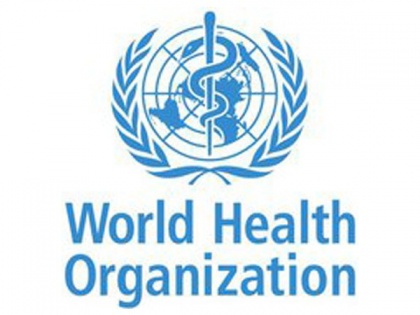WHO SEARO calls for preparedness to save lives during public health emergencies
By ANI | Published: December 27, 2019 10:29 PM2019-12-27T22:29:01+5:302019-12-27T22:45:02+5:30
There is a need for all countries to invest in emergency preparedness to save lives during public health emergencies, said Dr Poonam Khetrapal Singh, Regional Director, WHO South-East Asia on Friday.

WHO SEARO calls for preparedness to save lives during public health emergencies
There is a need for all countries to invest in emergency preparedness to save lives during public health emergencies, said Dr Poonam Khetrapal Singh, Regional Director, WHO South-East Asia on Friday.
Dr Khetrapal said that fifteen years ago on 26 December, a strong earthquake in the Indian Ocean triggered a massive tsunami, with waves as high as 100 feet and devastated several countries in WHO South-East Asia Region by killing over 200000 people.
"One of the deadliest tsunamis in the history of mankind, it taught an important lesson - the need for all countries to invest in emergency preparedness, to save lives during public health emergencies," said the Regional Director of WHO South-East Asia.
Discussing climate change in India and its disturbing effects on human lives, the Regional Director said: "India's response to the most recent cyclone- F and the Nipah virus outbreak this year showed that preparedness has helped substantially reduce deaths and diseases during these events."
Experts say that in the last 15 years the South-East Asian Region has become more vulnerable due to climate change along with its associated risks and disease outbreaks which are the growing threat of emerging diseases.
It may be noted that earlier in September this year, the member countries adopted 'Delhi Declaration' to scale up preparedness to respond to health emergencies.
The declaration calls for four key initiatives - identify risks by mapping and assessing vulnerabilities for evidence-based planning; invest in people and systems for risk management; implement plans; and interlink sectors and networks to engage and involve all, beyond the health sector, who can and have a role in responding to public health emergencies.
"All Member countries have contingency plans in place which are periodically tested. Countries have been holding simulation exercises, annual self-assessments and with external partners, which are used to guide further strengthening of preparedness and response capacities," she said.
"Even when we have responded better, we have had lessons learnt such as - our preparedness should not be limited only at the national level. All levels, including sub-national levels, should be well prepared to respond to all public health emergencies," Dr Khetrapal Singh said.
( With inputs from ANI )
Open in app